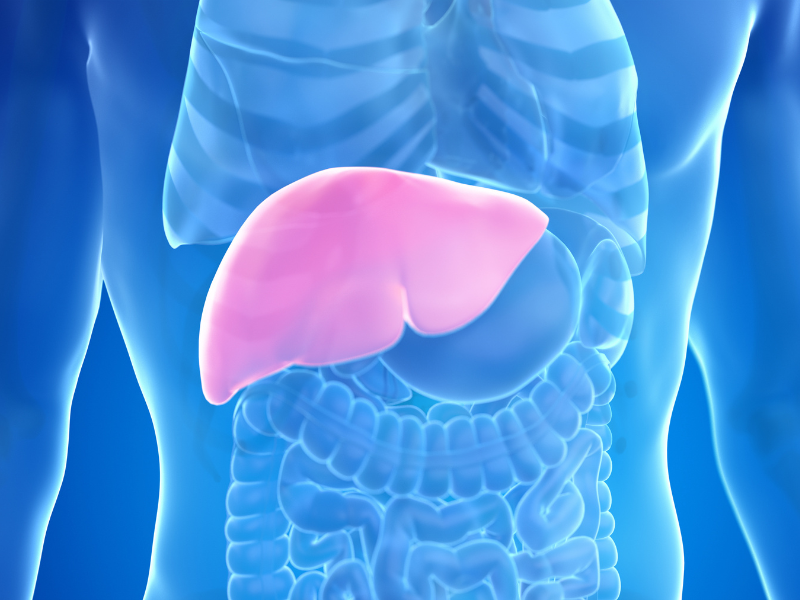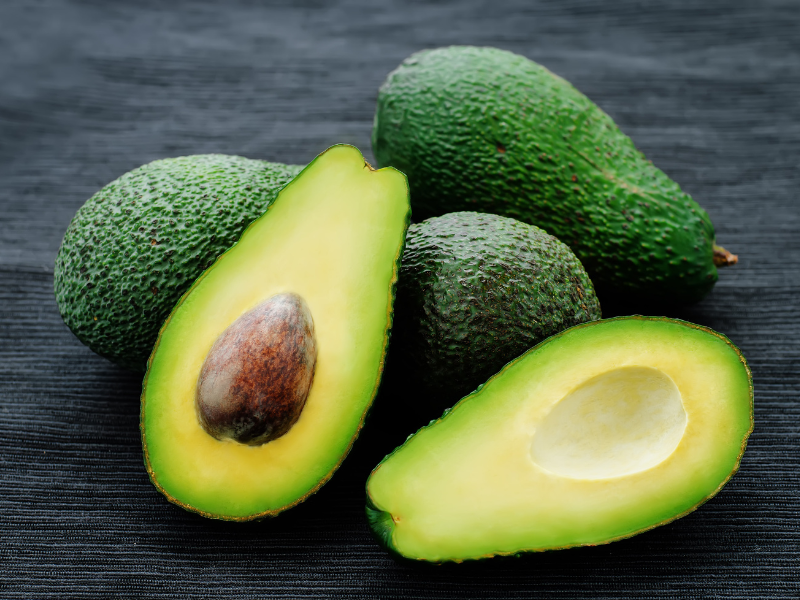


When it comes to eating healthily, there’s no denying that avocado will be on the list of delicacies you consume regularly. Avocados boast a rich nutritional profile, benefiting our health and wellbeing by improving digestion, preventing bone loss, protecting the heart, increasing brain function, and so on.
That said, a popular saying goes, “Too much of anything is bad.” While avocados can improve our health when consumed in good amounts, eating too much of the fruit can also have side effects. If you’re addicted to this superfood and are wondering whether eating too much of your favorite fruit has avocado side effects, then read to know more about this nutritional tip to keep in mind.
Key Takeaways
- Eat avocados moderately to maintain a healthy body and steer clear of its side effects.
- Avocado side effects may be more dangerous if you have a medical condition that requires you to stay away from avocados. In such instances, it’s better to totally avoid the fruit.
- Avocados are high in calories; hence overeating them may give rise to certain health problems that occur due to excess calorie intake.
- If you feel uneasy whenever you eat avocado, you’re probably allergic to the fruit and should stop or dramatically reduce the quantity you consume.
- Excess consumption of avocado seeds can cause gastrointestinal issues due to the presence of compounds like tannins, saponins, and phytates.
- Incorporate other healthy fats like olive oil, nuts, and fatty fish into your diet to maintain a balanced fat intake.
You may also like: A Guide to the Best Mediterranean Diet Recipes [Free PDF]
Side Effects of Eating Avocado
1. Weight Gain

Avocados are rich in heart-healthy fats and monounsaturated fats, which is great, but they’re also high in calories. For instance, half an avocado contains around 160 calories and 12 grams of fat [1]. A medium avocado contains about 240 calories and 24 grams of fat. Eating too many avocados can spike your caloric intake, which may lead to weight gain over time if you don’t burn the calories.
If you’re on a weight loss journey or you’re keeping an eye on your calorie intake for health or other reasons, having too many avocados can easily throw you off your calorie goals. It’s important to practice avocado consumption in moderation to avoid excess calorie intake and maintain a healthy body weight.
Know if you’re within the healthy weight range with our BMI Calculator
2. Risk of Chronic Health Problems

Since the avocado is high in calories, having too much of it can contribute to a high risk of chronic health problems like [2]:
- Type 2 diabetes
- coronary heart disease
- Cancer
- Musculoskeletal disorders like osteoarthritis
When the body stores excess calories from food, it stores them as fat. Excess fat accumulation causes one to become overweight or obese, and there are also health consequences such as the ones mentioned earlier. It is important to incorporate other healthy fats like olive oil into the diet to maintain a balanced fat intake.
3. Allergic Reactions

While this may sound strange, it’s true. Study shows that some people get symptoms like itching or swelling of the lips whenever they consume a lot of avocados, which indicates allergic reactions. People who are allergic to avocados may want to have a lot of the tasty fruit, but their body doesn’t. In such instances, refraining from eating avocados or significantly reducing its consumption will be the best way to tackle the situation. Alongside the previously mentioned symptoms, avocado side effects may include
negative reactions like hives, difficulty breathing, and stomach pain or vomiting.
If you notice any of these side effects after avocado intake or even touching avocados, then you should be more careful with the fruit. If the symptoms are mild, you may still be able to enjoy avocado from time to time but only a small quantity that works for your body and won’t trigger your allergies.
Individuals with a latex allergy may also have an avocado allergy due to the similarity between the proteins in latex and avocados [3]. If you’ve ever had a reaction to latex, it’s a good idea to be cautious with avocados or talk to your doctor.
4. Digestive Issues

Although avocados are foods rich in fiber, which is generally great for digestion, their moderate consumption is essential to keep the digestive system operating optimally. When consumed in excess amounts, the side effects of avocado can include digestive discomforts like:
- bloating
- gas
- pain in the gut
- or even diarrhea due to their high fibre content.
Know the moderate quantity for you. If your body isn’t used to a lot of fiber, introducing it gradually is the best way to avoid stomach trouble.
5. Migraines

Due to the presence of tyramine, some people experience migraines or headaches after consuming avocados [4]. Although the evidence remains inconclusive, tyramine is an amino acid that is believed to trigger headaches or migraines in certain individuals.
If you observe that you experience migraines anytime you eat too many avocados or you have a family history of them, you should regulate your consumption of the fruit to maintain healthy eating for an active body.
6. Potential for Liver Damage

Individuals with pre-existing liver conditions must be extra careful with avocados as some types contain estragole and anethole. In certain animal studies, these two compounds have been shown to cause damage to the liver [5]. Although this side effect is uncommon, it’s worth mentioning so individuals who may fall into such categories will be cautious about the type and quantity of avocados
they eat– if at all they want to enjoy the fruit.
The liver is a crucial body organ that needs to be protected for its invaluable role in removing toxins from the body’s blood supply, regulating blood clotting and sugar levels, and so on.
Related article: No Sugar No Flour Diet: The Ultimate Fat-Burning Solution
Side Effects of Avocado Seed

Avocado seed is another part of the fruit a lot of people enjoy. The seeds are mainly consumed as a tea after chopping and boiling them in water. These seeds are rich in tannins, saponins, phytates, and other compounds that may cause gastrointestinal issues, hence should be consumed in moderation [6]. Excess consumption may cause gas, stomach pain, bloating, and other digestive issues.
Final Thoughts
Avocados are undoubtedly a nutrient-dense fruit that can bring plenty of health benefits, along with avocado oil. Nevertheless, as with any food, consuming too much under certain health conditions can cause avocado side effects.
It’s essential to listen to your body and adjust your avocado and healthy food intake accordingly to avoid causing any harm to your body. There’s a lot to love about avocados, and there are so many ways to enjoy the fruit, but like anything in life, it’s all about balance! To learn more tips on healthy habits you can incorporate for an active lifestyle, check out the JustFit app!
Are there any side effects to eating avocado?
Who should not eat avocado because of its side effects?
Is it okay to eat an avocado every day?
What not to mix with Avocados?
Why do some doctors advise not to eat avocado?
Does avocado seed have side effects?
Bangar, S. P., Dunno, K., Dhull, S. B., Kumar Siroha, A., Changan, S., Maqsood, S., & Rusu, A. V. (2022). Avocado seed discoveries: Chemical composition, biological properties, and industrial food applications. Food chemistry: X, 16, 100507. Available at: https://doi.org/10.1016/j.fochx.2022.100507
Bjarnadottir, A. (2023, December 6). Avocado: Nutrition and benefits. Medical News Today.Available at: https://www.medicalnewstoday.com/articles/318620
Choudhary, T. (2024, September 4). 11 side effects of avocados you should be aware of. STYLECRAZE.Available at: https://www.stylecraze.com/articles/serious-side-effects-of-avocados/
Juber, M. (Ed.). (2022, November 29). 5 foods high tyramine and why you should avoid them. WebMD. Available at: https://www.webmd.com/diet/foods-high-in-tyramine
Kawagishi, H., Fukumoto, Y., Hatakeyama, M., He, P., Arimoto, H., Matsuzawa, T., Arimoto, Y., Suganuma, H., Inakuma, T., & Sugiyama, K. (2001). Liver injury suppressing compounds from avocado (Persea americana). Journal of agricultural and food chemistry, 49(5), 2215–2221. Available at: https://doi.org/10.1021/jf0015120





